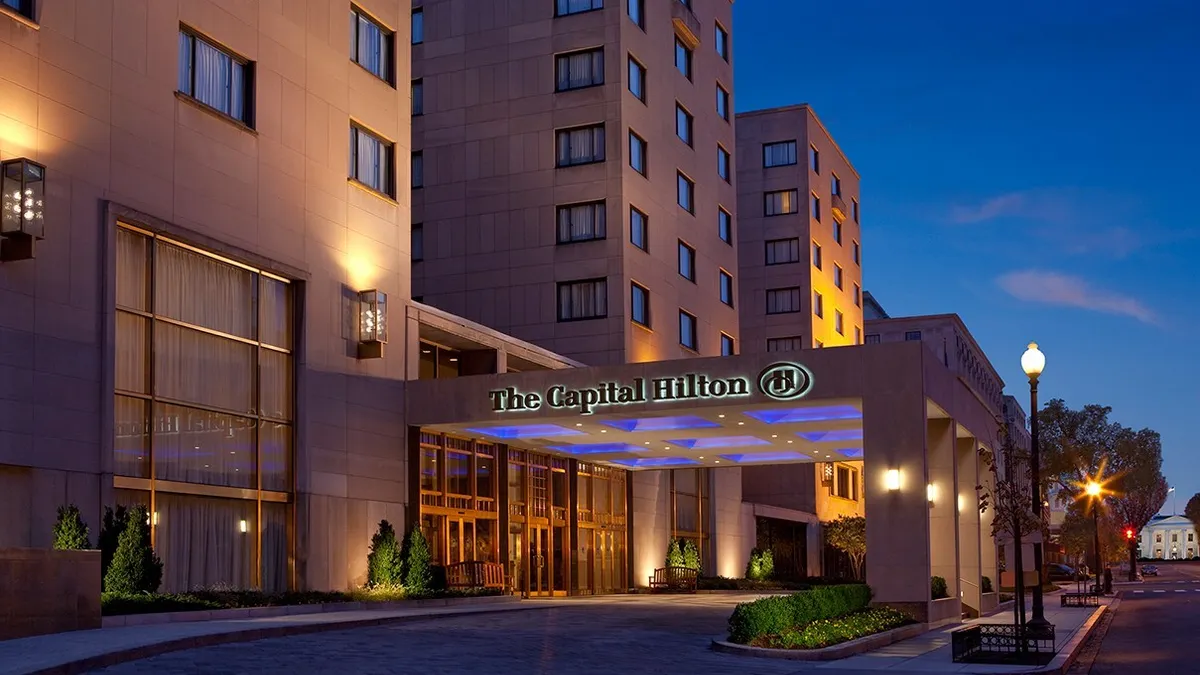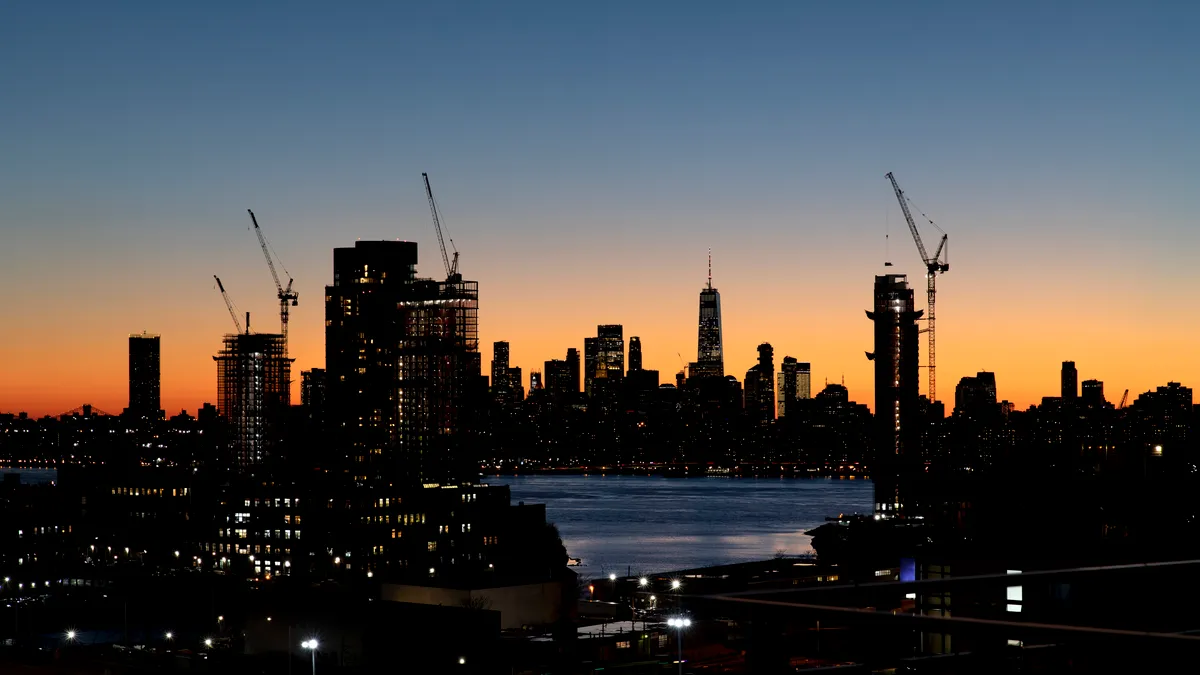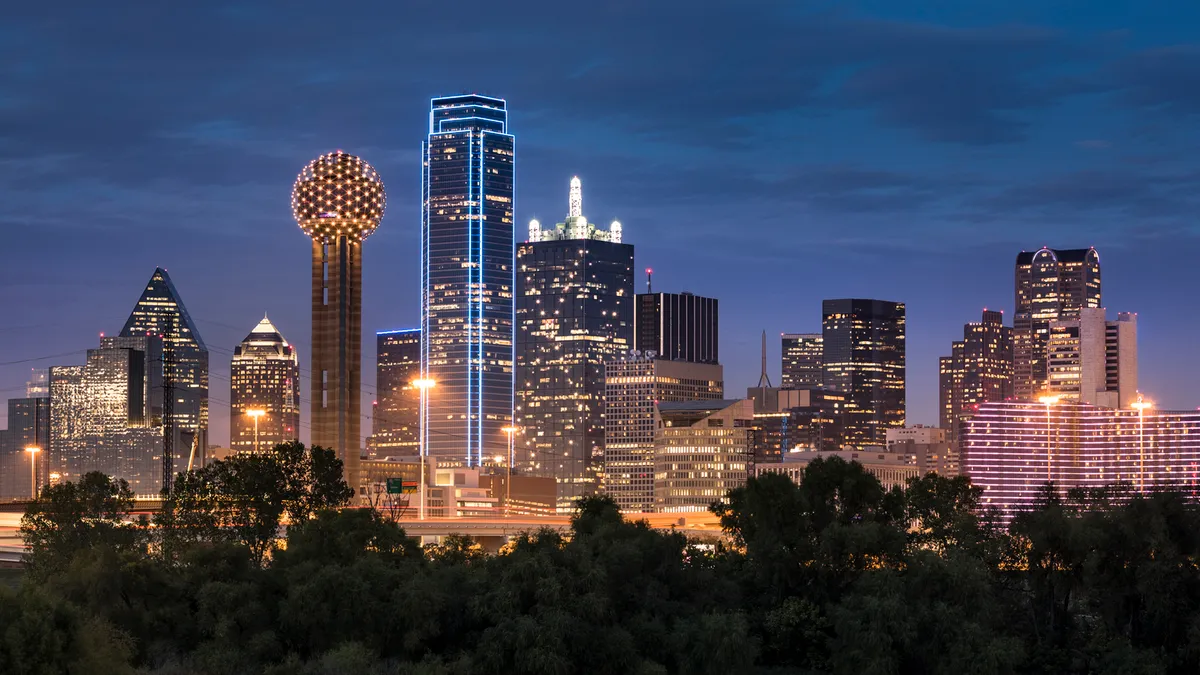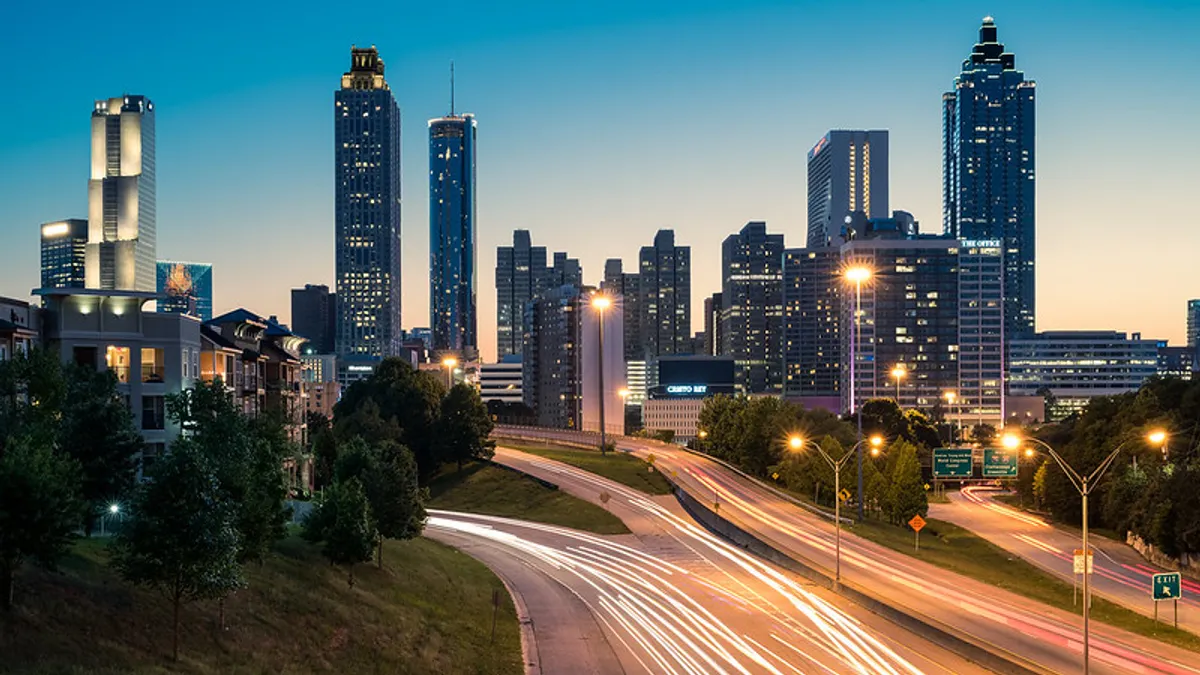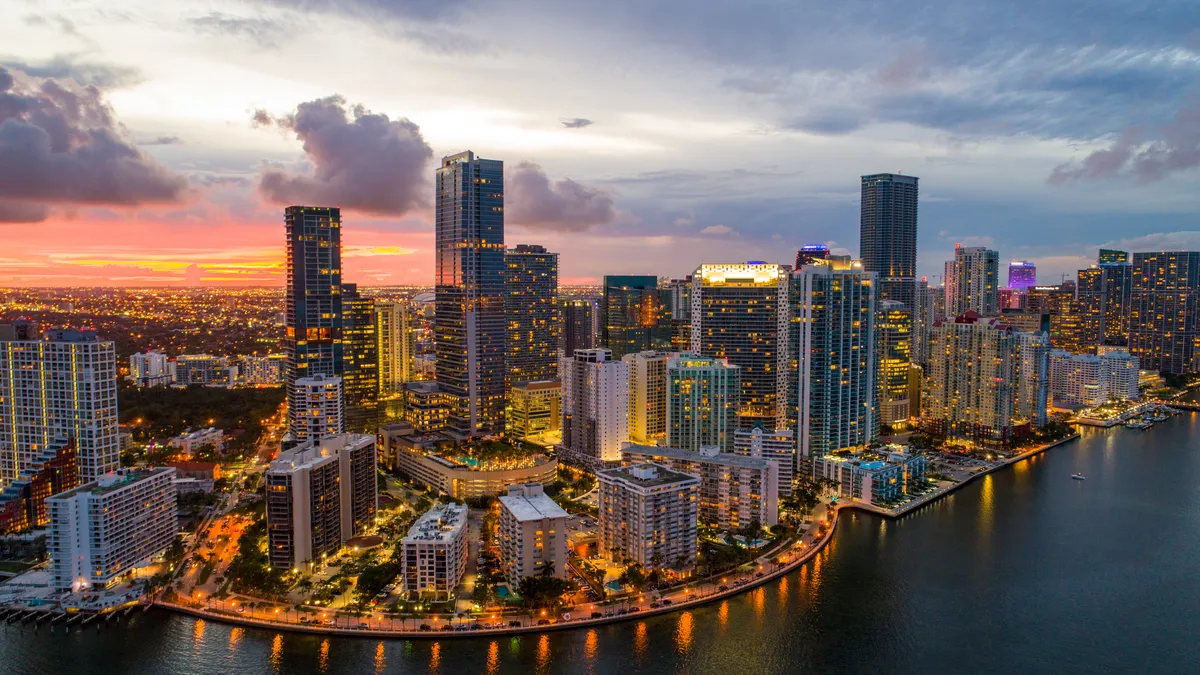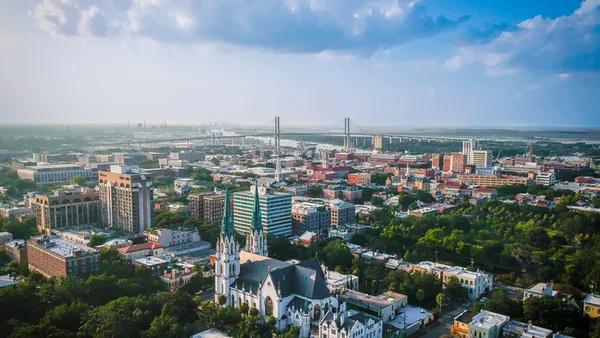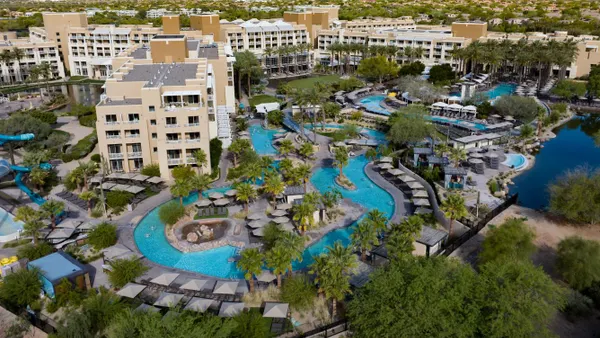The Phoenix metropolitan area has emerged as a leading destination for sports spectators and luxury vacationers. Relocating companies and major infrastructure projects are also driving more people to the market.
Regardless of their purpose for coming, the influx of travelers is spurring growth for the Phoenix hotel industry, with the market’s hotel RevPAR, ADR and occupancy increasing in recent years — and RevPAR and ADR up significantly from pre-pandemic levels.
The strong growth fundamentals are keeping hotel investors hungry for deals in the area, and developers are eyeing the hottest submarkets for their next lodging projects, from luxury resorts to economy extended stay properties.
Local hospitality experts shared insights with Hotel Dive about Phoenix’s rapidly growing economy and how it’s impacting the city’s current and future hotels.
Sports tourism boosts leisure travel
In 2023, the number of visitors to the Phoenix metropolitan area grew 4.7% year over year to 46.7 million visitors, according to an economic impact report by Tourism Economics, prepared for Visit Phoenix and obtained by Hotel Dive.
Visitor spending increased as well, with travelers to the Phoenix metropolitan statistical area spending $12.9 billion in 2023, up 7.6% over the prior year and 27.1% over 2019. Some 35%, or roughly $4.5 billion, of that visitor spending went toward lodging, according to the report.
Visit Phoenix Vice President of Insights and Development Eric Kerr told Hotel Dive people are visiting the MSA for a mix of reasons.
Some travelers come to explore the outdoor recreation the area provides and “escape more congested cities,” Kerr said. Sporting events are another “huge driver” of leisure tourism, he added.
Nearby Glendale, Arizona, hosted Super Bowl LVII in February 2023, “cementing [the Phoenix area’s] ability to handle nationally-attended events,” commercial real estate agency Marcus & Millichap detailed in a market report.
And the metropolitan area hosts annual events like Cactus League Spring Training in February and March, during which 10 facilities welcome 15 Major League Baseball teams to practice and scrimmage ahead of the official season start.
“March is our biggest peak season for our hotel market here, and that's right when we're hosting the Cactus League spring training,” Kerr said. According to a study by Arizona State University's W.P. Carey School of Business, Cactus League generated an estimated $710 million in economic impact for the state of Arizona in 2023 alone.
Phoenix hosts NASCAR events annually as well, Kerr mentioned. And the city has already been selected for the Women’s NCAA Final Four Championship in 2026.
Group and business travel recovers
Meanwhile, the market has also seen an influx of group travel driven by a strong resurgence of meetings and events, Kerr said.
Brian Frakes, president of local development firm Common Bond Development Group, echoed Kerr, saying “demand on the group side is very, very strong in the overall marketplace.”
Phoenix was among 20 U.S. markets to see 100% recovery in group business performance in the fourth quarter of 2023, according to Knowland and Amadeus’ Hospitality Group.
Branden White, vice president and consultant in the Western Division of CBRE Hotels Advisory, told Hotel Dive that the Phoenix MSA is “less reliant on international travel and group business compared to many other similarly sized regional markets.”
According to a CBRE Hotels Research report obtained by Hotel Dive, business travel was “up moderately” in the first quarter of 2024, as “more conventions and conferences showed preference for in-person attendance.”
The market is also poised to see growth in so-called bleisure demand, White said, driven by a “business-friendly environment, large local talent pool and advantageous geographical location.”
Bleisure travel, when business travelers tack on extra time to their work trip to enjoy the surrounding destination’s leisure offerings, is a leading meetings and events trend to watch this year, Julius Robinson, Marriott’s chief sales and marketing officer for the U.S. and Canada, previously told Hotel Dive.
Hotel performance outpaces other regional markets
Amid a period of strong travel demand, the Phoenix MSA has performed “exceptionally well” in recent years, outpacing other regional markets in terms of occupancy levels and ADRs, White said.
Hotel occupancy, ADR and RevPAR in Phoenix in 2023 increased 1.3%, 6.9% and 8.2% year over year, respectively, according to the CBRE report. And while the city’s occupancy rate lagged 2019 levels slightly in 2023, ADR and RevPAR were up significantly (29% and 27%, respectively) for the same period.
In 2023, Phoenix hotel RevPAR was up significantly from pre-pandemic levels
In the first quarter of this year, though, ADR saw some pullback, White noted, “relative to the exceptionally strong performance observed in Q1 2023, which was bolstered by Super Bowl LVII and MLB Spring Training.”
Supply growth is anticipated to outpace demand growth during 2024, he added, resulting in a slight drop in occupancy.
CBRE forecasts that Phoenix hotel occupancy will decline 0.2% in 2024, while ADR and RevPAR will decrease 1.1% and 1.3%, respectively. However, in 2025, all performance metrics in the market will be up year over year, CBRE predicts.
“Looking towards 2025, Phoenix RevPAR is expected to grow 2.8%, reversing the downward trend of 2024,” the CBRE report reads. And “prospects for RevPAR growth in the middle-priced segment are better than in the upper-priced segment.”
Nearly half (47%) of the rooms in the Phoenix market are middle-priced, White said. Some 33% are upper-priced rooms, and 20% are lower-priced rooms.
“This represents an above-average ratio of upper-priced rooms, as only about one in five U.S. hotel markets have 25% or more of upper-priced product,” White added.
Investors remain hungry for deals
The Phoenix MSA’s strong performance fundamentals make it a market that “hotel investors are very interested in,” White said.
Along with healthy tourism levels, the region’s recent population growth — driven by the “flourishing” tech industry and manufacturing sectors — has spurred hotel investment, White said. In January, commercial real estate advisory firm Newmark Group ranked Phoenix No. 1 for manufacturing job growth in the U.S., noting the market had more than 15,000 new jobs created in the sector in 2023 alone.
Over the past year, “hotel investment volume in the Phoenix market was approximately $1.5 billion,” with four hotels selling for more than $100 million, White shared. Over the past two years, middle-priced segments led the majority of sales volume, he said.
Most of the recent hotel sales represent individual transactions among private buyers, he noted.
In May, Henderson Park acquired the 705-key Arizona Biltmore, a Waldorf Astoria resort, for $705 million. Chatham Lodging Trust also recently purchased the Home2 Suites by Hilton Phoenix Downtown for $43.3 million.
A significant portion of sales volume occurs in the Scottsdale submarket, which is also the highest performing submarket in terms of ADR and RevPAR, White said. According to the CBRE report, the Scottsdale submarket saw 3% year-over-year ADR growth and 5.9% year-over-year RevPAR growth in 2023.
Across the metropolitan area, investment activity is “anticipated to continue to remain robust over the near term,” White said.
Developers focus on extended stay
Just as manufacturing job growth is keeping investors interested in the Phoenix MSA, it’s also driving hotel development — particularly in the extended stay segment, White noted.
Taiwan Semiconductor Manufacturing Company, for example, “continues to import workers” for its $40 billion semiconductor factory project in the area, the Marcus & Millichap report detailed. Many of these workers need longer-term accommodations, so nearby extended stay hotels “may see improved demand and investor interest for this reason,” the report reads.
Other mega projects currently underway in the Phoenix MSA include a $20 billion development of two semiconductor plants for tech company Intel and a $675 million Nestlé creamer plant.
To keep up with hotel demand from construction workers generated by these and other projects, several new extended stay properties have come online in recent years, White said. And more are on the way.
Paul Duncan, the development leader for extended stay brand LivAway Suites, told Hotel Dive in April that the brand is targeting Phoenix for expansion because of the area’s ongoing infrastructure projects. Developers for Wyndham’s Echo Suites extended stay brand are eyeing Arizona for similar reasons.
But it’s not just extended stay that’s driving hotel development across the Phoenix MSA.
Marriott International is developing a dual-branded AC Hotel and Element by Westin property in the Norterra neighborhood. And there are several major luxury resort projects underway in the market, including the $1 billion VAI Resort.
The 60-acre VAI will feature some 1,100 hotel rooms and suites, a 360-degree concert stage, more than a dozen fine dining concepts and a 5-acre swimming pool. The resort will also be home to the first Mattel Adventure theme park.
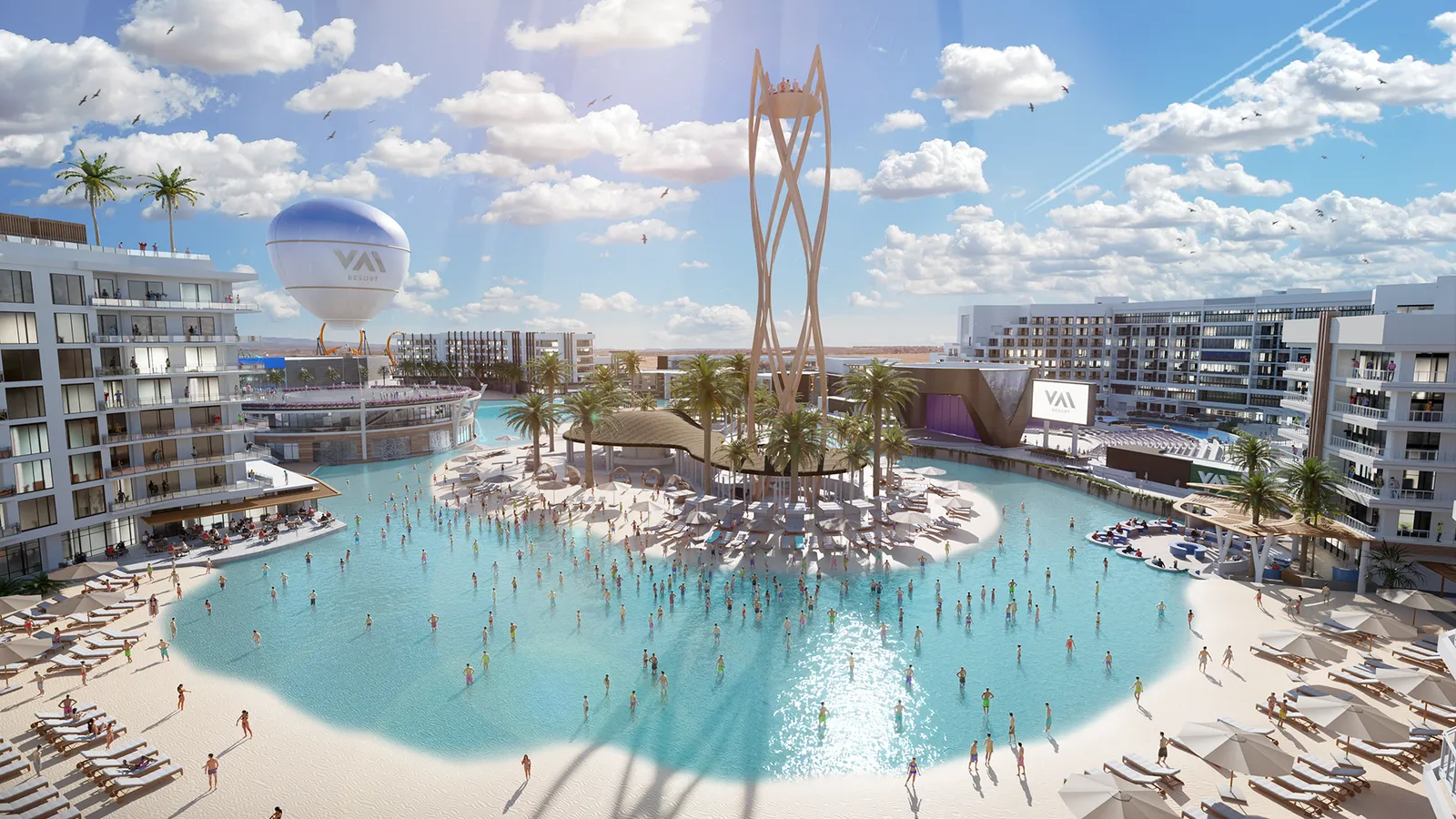
More travelers are looking for experiential offerings when visiting Phoenix, particularly from hotel food and beverage concepts, Frakes noted. Alongside restaurateur and 12-time James Beard Award nominee Sam Fox, Frakes co-owns Phoenix’s newly opened Global Ambassador resort, which offers five distinct dining concepts.
The 20-acre Ritz-Carlton Paradise Valley, currently under construction, will also offer luxury dining experiences, along with more than 20,000 square feet of meeting space, a spa and a 400-foot-long swimming pool.
Across all segments, Phoenix has a strong hotel development pipeline. According to Lodging Econometrics, Phoenix had the fourth largest hotel construction pipeline in the U.S. in Q1 2024, following only Dallas, Atlanta and Nashville.
“Pipeline and development activity is anticipated to remain elevated through 2024 and 2025 before returning to a pace of growth that is more in-line with the long-run average,” White said.
Correction: A previous version of this article misdated the VAI Resort opening. The project is slated to open in 2025.





